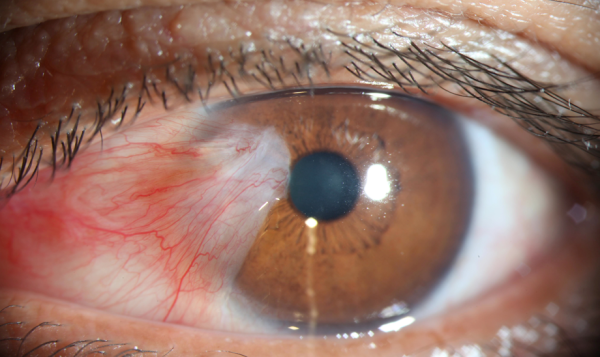
What is a Pterygium?
A Pterygium is an elevated, wedge-shaped growth that extends from the white of the eye onto the cornea. The cornea is the clear window in front of the iris, or coloured part of the eye.
Pterygia can cause a number of problems, beginning with redness and irritation of the eye. A pterygium growing across the cornea can cause distortion, resulting in impaired vision. In advanced cases, a pterygium can cover the pupil, causing visual loss.
Who is at risk of Pterygia?
Exposure to ultraviolet light and irritants (such as wind and dust) can lead to the formation of pterygia, which are more likely to occur in people living in tropical and subtropical environments or people who participate in water sports. Protecting the eyes from exposure to sunlight and irritants may prevent the formation of pterygia. Wearing sunglasses outdoors offers a good preventative measure.
How are Pterygia treated?
Lubricating eye drops may help with redness and irritation, however pterygium surgery may be required if vision is threatened.
Pterygium surgery is usually performed under a local anaesthetic, together with a mild sedative, and the patient is able to go home shortly after surgery. Following surgery, the surface of the eye will be very sensitive, so it is imperative that the patient rests and uses anti-inflammatory eye drops for a period of eight weeks.
Your Ophthalmologist Dr Daniel Black is highly experienced in pterygium surgery, using the latest surgical techniques. With these techniques, the chances of a recurrence of pterygia are less than five per cent.
See also:

